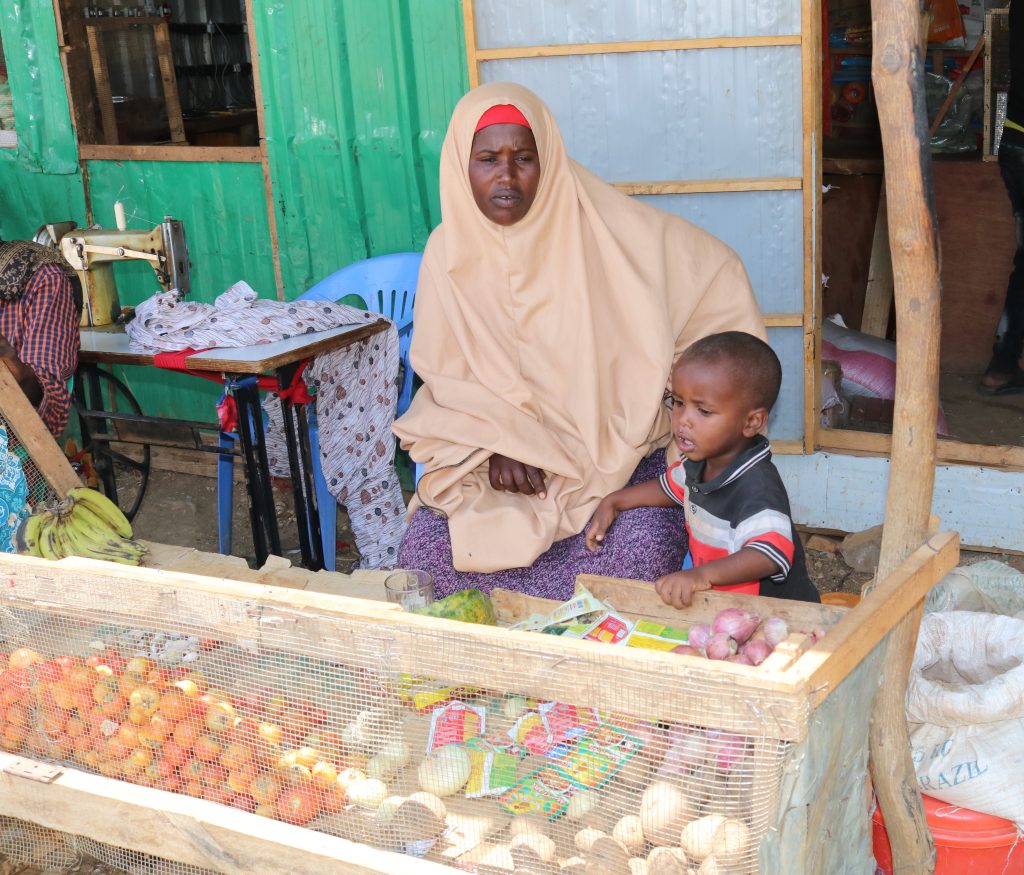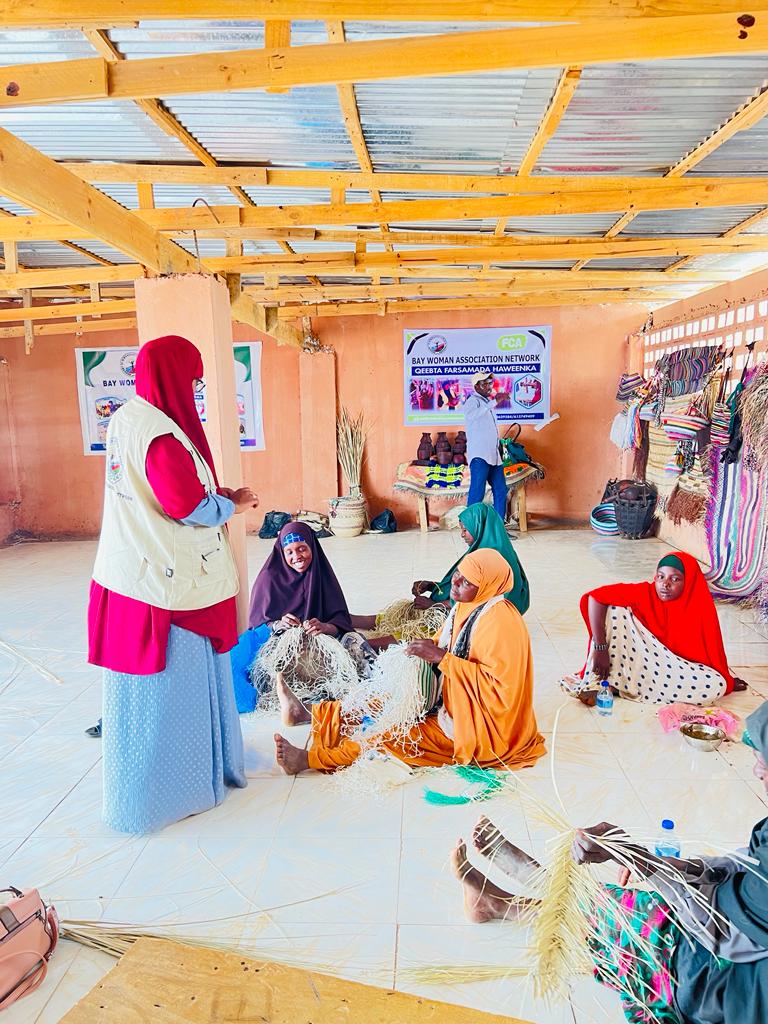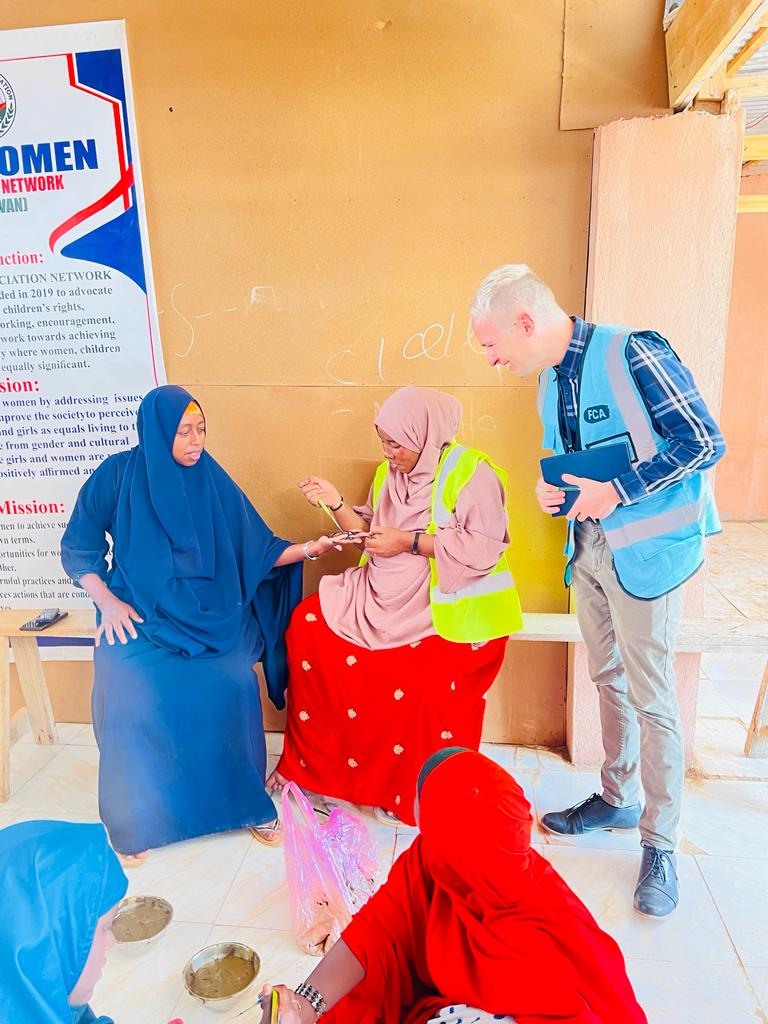World Refugee Day 2023 – supporting Somalia’s internally displaced people
World Refugee Day is an opportunity to recognise and support the millions of people across the globe who have had to flee their homes due to conflict, violence, persecution, among other reasons. FCA also supports internally displaced people in places like Somalia.
Zaynab, 55, lives in the DurDur camp for internally displaced people in Burao, Somaliland. The longstanding drought in East Africa resulted in her livestock dying. Without resources to support her family of six children, she was forced to come to the camp.
FCA Somalia has been working tirelessly to assist households like Zaynab’s, affected by the longstanding drought in Somalia. From October 2022 to February 2023, the FCA team offered multipurpose unconditional cash transfers (MPCT) to help with urgent household requirements.
Cash lends flexibility to households
The cash project has proven essential in giving households the flexibility they need to deal with the impacts of the drought disaster, which have led to large-scale and long-lasting population shifts.
In Baidoa, Somalia, Hawa Noor a 35 year old mother of 5, arrived at the internally displaced people’s (IDP) camp from Dinsoor. She fled with her children after life became unbearable due to drought and violence in the region. She made the difficult decision to leave her husband to look after the small number of their goats that still survived.

She set up the stall with cash from FCA. PHOTO: FCA
“I was traumatised as life was difficult due to conflict and drought. On top of that, a memory I will never forget is my losing my sister, the mother of this young child (pointing to the 4-year-old girl sitting next to her). I’m her mother now,” she adds sadly.
Arriving at the camp, she had nothing to sustain her children’s needs. She depended on a neighbour’s aid and casual work, which was hard to come by. Getting proper shelter for the children was much more challenging than she had thought before leaving her home.
Building a business
Hawa was one of the beneficiaries supported by FCA’s cash payment of $80 per month for six months. In the first installment, she built a house for her children; in the second, she started a vegetable and groceries kiosk near the camp. Over the next months she continued contributing money to the small business each month while utilising the remaining cash for the children’s needs. She bought food, clean water and milk powder.
She also paid for her children’s school fees, plus educational materials.
FCA’s programme has transferred cash payouts via mobile phone transfers to targeted households in both regions of Baidoa and Burao. The initiative has focused on the most vulnerable individuals affected by the recent drought.
In all, 1100 households comprising 913 women and girls and 187 men and boys in 21 IDP camps have received a lifesaving cash distribution of $80 per home over three months.
As the programme comes to an end, many families like Hawa’s now have a small income-generating activity to sustain their daily needs until conditions become better.
New skills lead to sustainable livelihoods
In Baidoa, a project funded by the ACT Alliance, provides training for 40 women, who are also internal refugees. They learn handicrafts, like henna painting, as well as skills and basic numeracy and literacy to support running the business.

at the Bay Women Institute

at the training centre.
After the two month long training, carried out with our partners at the Bay Women Institute in Baidoa, the new entrepreneurs can offer their trade at the local market, bringing in extra income for their households.
The skills were chosen because they were simple yet marketable skills that the women could use within the camp to quickly generate income.
Due to their newly gained skills, the students also reported a boost in their self-esteem and confidence. The project highlights FCA’s commitment to support vulnerable communities through capacity building and empowerment initiatives.
Text: Fatima Abshir